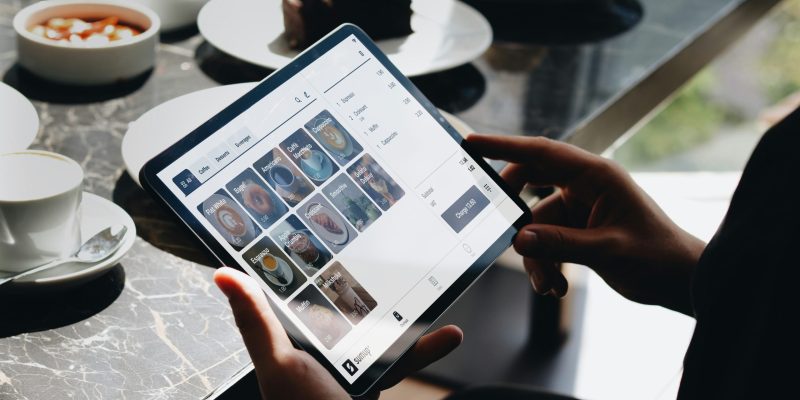Artificial Intelligence for restaurants: voice AI, menus and prices
Currently, the catering sector is undergoing a technological revolution thanks to advances in artificial intelligence. One of the main innovations gaining ground in this area is the use of AI for menu and price management, together with emerging technologies such as voice recognition and the use of WhatsApp as a communication channel. In this blog post, we will explore how these tools are simplifying the lives of restaurateurs.
1. Smart menus: the future of catering
One of the main areas where AI is having a positive impact is menu creation and management. Using advanced algorithms, AI can analyse customers’ tastes, preferences and behaviours, adapting menus in real time to offer options that are more aligned with their desires. This not only improves the customer experience, but also allows restaurateurs to make informed decisions about which dishes are most popular or profitable.

2. Price optimisation: maximise your earnings with AI
Artificial intelligence applied to pricing allows restaurateurs to optimise profit margins in real time. Through predictive models and big data analysis, AI can recommend dynamic prices that respond to factors such as demand, weather, location, or even special events in the city. These types of automatic adjustments ensure that prices remain competitive without sacrificing profitability, which is crucial for the survival of any restaurant business in times of economic uncertainty. For example, if a restaurant is located in a tourist area and experiences an increase in customers during the high season, AI can suggest a small price increase on popular dishes, based on historical consumption patterns. On the other hand, during slower days, the system could offer discounts to attract more customers.
3. The voice AI revolution in catering
One of the most interesting developments in AI for restaurants is the integration of voice AI. Using their voice, customers can ask questions about ingredients, gluten-free options, make reservations, or even ask for recommendations based on their personal preferences. For example, a customer could simply say, “What vegetarian dishes do you recommend today?” and the AI, connected to the restaurant’s system, would instantly respond with the best options on the menu. This type of interaction not only improves the customer experience, but also streamlines service, reducing waiting times and increasing efficiency.
4. WhatsApp as a smart communication channel
When it comes to customer communication, the integration of WhatsApp with AI is revolutionising the way restaurants interact with their customers. Automated messaging systems allow customers to make reservations, place orders, obtain menu information and receive promotions, all through a channel they already know and use on a daily basis. With AI integrated into WhatsApp, restaurants can automatically handle frequent requests, answer questions about opening hours and dish availability, and even recommend menus based on customer preferences. In addition, AI can send personalised messages with special offers, booking reminders or even birthday wishes to customers. This type of personalised communication not only improves the customer experience, but also increases the likelihood that they will choose that restaurant again.
Benefits of AI for restaurateurs: efficiency and personalisation
The use of AI offers restaurateurs a number of tangible benefits:
Cost reduction: automating tasks such as pricing and customer service reduces the need for staff in certain areas, allowing employees to focus on more critical activities.
Improved customer experience: AI-powered personalisation creates a more satisfying experience for customers, which can translate into increased loyalty and repeat visits.
Greater competitiveness: restaurants that adopt these technologies gain a competitive advantage by being more efficient, dynamic and able to adapt quickly to market changes.
What lies ahead? The future of catering with AI
As technology continues to advance, the role of AI in the restaurant industry is expected to expand further. From predictive analytics to improve inventory management to the integration of fully customisable menus that adapt in real time to each customer’s tastes, the possibilities are virtually endless. While AI for menus and pricing is already making a noticeable difference in the industry, the future promises even more radical changes, and those restaurateurs who remain at the forefront of technology will be better positioned to take advantage of these advances and transform their businesses in a sustainable way.
If you are a restaurateur, it is time to start considering these tools to optimise your business, improve your customers’ experience and stay ahead in a highly competitive market. AI is already here to transform the restaurant industry, and you certainly don’t want to be left behind!
